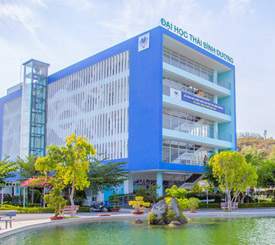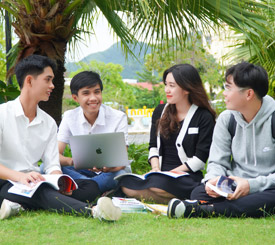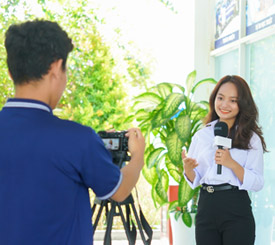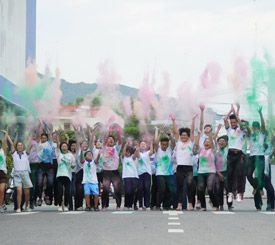+84 258 3727 147
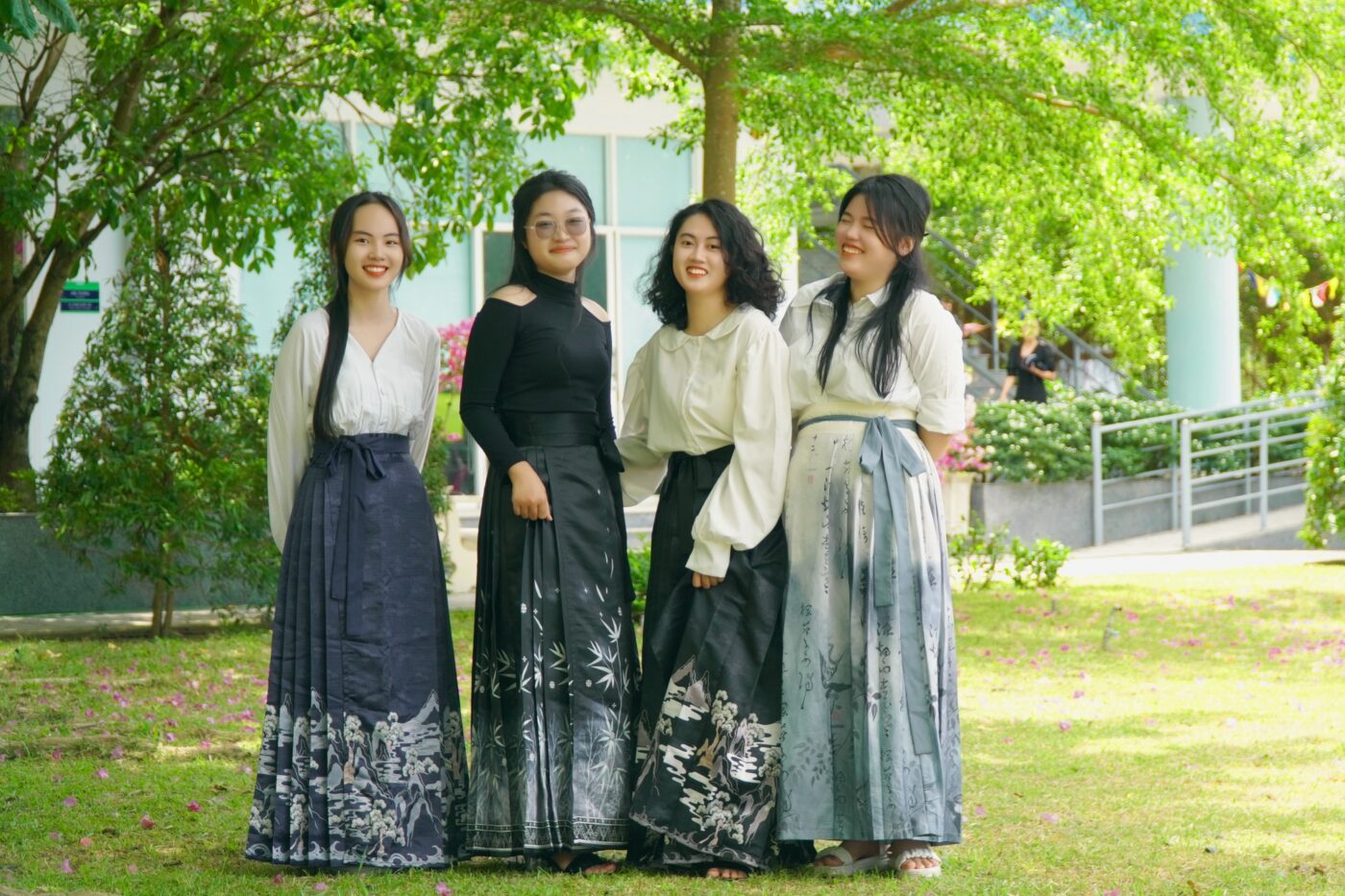
The Faculty of Languages and Cultural Studies is currently offering two undergraduate programs: Bachelor of English Linguistics (with specializations in Teaching, International Tourism, Translation and Interpretation, and Communication) and Bachelor of Oriental Studies (with Chinese and Korean languages).
With the goal of building a curriculum based on a liberal education philosophy, the English Language and Oriental Studies programs aim to equip students with the necessary skills to become global citizens and integrate well with the international trends of the era.
The training program is designed so that students can complete 121 credits (equivalent to 1,815 hours of study) within 11 to 12 semesters (one academic year consists of 3 semesters). The curriculum is developed and delivered by a team of experienced and knowledgeable instructors. The dynamic learning environment, supported by modern equipment and facilities, encourages students to develop lifelong learning habits, teamwork skills, independent and creative thinking, intercultural communication skills, and integration skills.
Some notable activities of the Language and Culture programs include: Korean Culture Day, Calligraphy Day, and Easy English Club.
The faculty maintains close relationships with recruitment units, including businesses, language centers, and hotels and restaurants in Khanh Hoa province, to support students during internships and job search.
ENGLISH LINGUISTICS
The English Linguistics program provides in-depth training in the English language, English-speaking cultures, and cultures of English-speaking countries. Students are immersed in a multicultural environment with educational activities such as simulated scenarios, case analysis, project practice, and group projects. Through these activities, students will refine their professional knowledge and soft skills to communicate confidently with foreigners and work effectively in international environments.
The program particularly emphasizes practical application and relevance by integrating current trends and significant social issues into classroom teaching.
The English Language program includes four specialized fields: Teaching Methods, International Tourism, Communication, and Business Diplomacy. The faculty consists of native speakers or instructors with many years of experience abroad.
A distinctive feature of Pacific is that from the first year, students receive guidance to choose a specialization that fits their preferences. This allows students to delve deeply into their chosen field and ensures they are prepared for the workforce upon graduation.
Many students in the English Language program have been hired directly by recruitment agencies during their internships or have found employment within their first year of graduation.
ORIENTAL STUDIES
Oriental Studies the field that explores the history, geography, economy, politics, language, and culture of Eastern countries. Language training is emphasized as it is the fundamental basis for quickly meeting the demands of the labor market. By studying this field, students will gain a deeper understanding of the major cultures of China, Korea, East Asia, and Southeast Asia.
In the Korean Language specialization, students learn directly from three native-speaking instructors, in addition to receiving practical language experience from instructors who have studied abroad. We ensure that graduates are proficient in the language, confident in communication, and strong in professional skills.
In the Chinese Language specialization, students not only learn from experienced instructors who have graduated from and worked in China but also regularly practice the language with native speakers and large travel companies. Graduates can start working immediately with companies where they have interned, without needing additional training.
With language proficiency equivalent to level 5/6, combined with knowledge across various fields and professions, graduates of the Korean and Chinese language specializations can pursue careers such as language assistants, translators and interpreters, hotel and restaurant managers, tour guides, tour operators, educators, film editors, and logistics coordinators.

